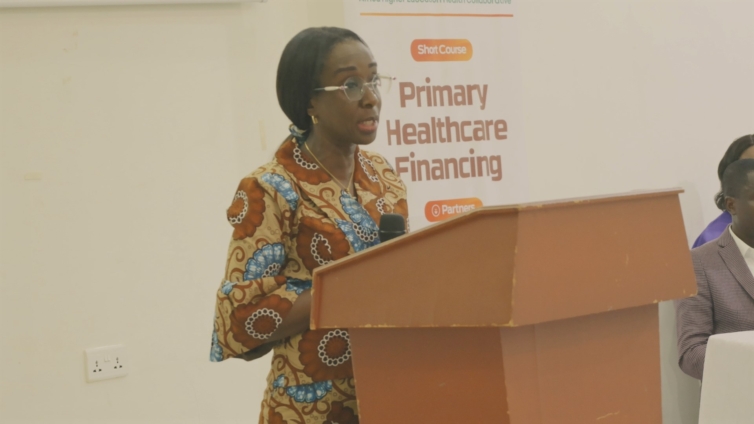The Food and Drugs Authority (FDA) is making a case for health technology assessment in the efficient use of resources for improved healthcare delivery in developing countries.
The CEO of the Authority, Dr Mimi Darko believes Ghana’s healthcare surging reliance on technologies makes it imperative.
“In our pursuit of meeting the demands of evolving trends, particularly in technology and assistive devices, the significance of health technology assessment cannot be overstated.
"Especially in developing countries where resources are often scarce, efficient allocation is paramount.
“Health technology assessment serves as a compass in efficient utilisation of our resources to ensure we have optimal healthcare delivery.
"Especially in Ghana, there is the need for health technology assessment and it has become more pronounced across all facets of the health sector even in the remotest areas,” she noted.
Dr Darko also touched on the role of health regulation in fulfilling the SDGs.
“I am confident the course content will shed light on the vital role of regulatory issues in achieving the Sustainable development Goals,” she charged.
She was speaking at the opening ceremony of the Health Technology Assessment (HTA) and Healthcare Industry and Regulatory Affairs (HIRA) courses by the Africa Higher Education Health Collaborative at the Kwame Nkrumah University of Science and Technology.
The Health Technology Assessment (HTA) and Healthcare Industry and Regulatory Affairs (HIRA) courses are spearheaded by the Health Employment Pillar of the Collaborative led by Dr. Kofi Akohene Mensah.
Health Technology Assessment (HTA) allows a critical assessment of health technologies as a basis for making evidence-based decisions in the health sector.
The course has been accredited by various health professional bodies for Continuous Professional Development (CPD) points.
32 and 30 health personnel were allowed to take part in the second cohort of the Health Technology Assessment (HTA) and Healthcare Industry and Regulatory Affairs (HIRA) courses respectively.
The Principal Investigator of the Collaborative, Prof. Ellis Owusu-Dabo entreated participants to take advantage of the opportunity to impact their community.
The partners in the workshop include: KNUST School of Public Health, The DAAD-PAGEL (German Academic Exchange Service Partnership for the Health Sector in Developing Countries) Accelerating Capacity-Building in Health Systems Research and Management in Africa Project, and the German-West African Centre for Global Health and Pandemic Prevention (G-WAC)
The rest are the Department of Health Care Management at the Technische Universitat Berlin (TUB), Germany, the Norwegian Institute of Public Health, Norway, and the HTA Secretariat of the Ministry of Health, Ghana.
Latest Stories
-
MP rallies Dome-Kwabenya Youth to drive change
8 minutes -
Asante Queen Mother’s Death Silences the Heartbeat of a Kingdom
9 minutes -
Macroeconomic stability must translate into growth – BoG Governor tells Banks
13 minutes -
Joy FM’s aKorfa jets off with lucky listener for Asia tour
18 minutes -
Bawumia hails NPP youth wing after receiving nomination forms
20 minutes -
Jomoro chiefs praise government for commitment to Petroleum Hub project, but seek clarity from Mahama on land
29 minutes -
BoG meets banks on foreign exchange auctions and liquidity challenges
41 minutes -
NPP youth wing damns arrest of Fante Comedy, Akosua Jollof and Sir Obama Pokuase
53 minutes -
Helicopter crash: Obuasi West MCE explains why remains were carried in sacks
60 minutes -
Water supply interruption to affect parts of western Accra on August 13
1 hour -
Police arrest NPP activist ‘Sir Obama Pokuase’ over illegal arms display
1 hour -
Gov’t engages international experts to probe August 6 military helicopter crash – Brogya Genfi
1 hour -
Our last call lasted only 16 seconds – MCE on conversation with late Samuel Aboagye
1 hour -
Nana Konadu Agyeman-Rawlings lays wreath in honour of helicopter crash victims
1 hour -
BoG targets credit risk, liquidity and reserve requirements of banks in new regulatory measures
1 hour

